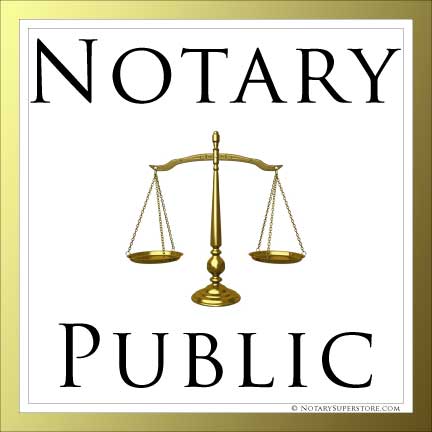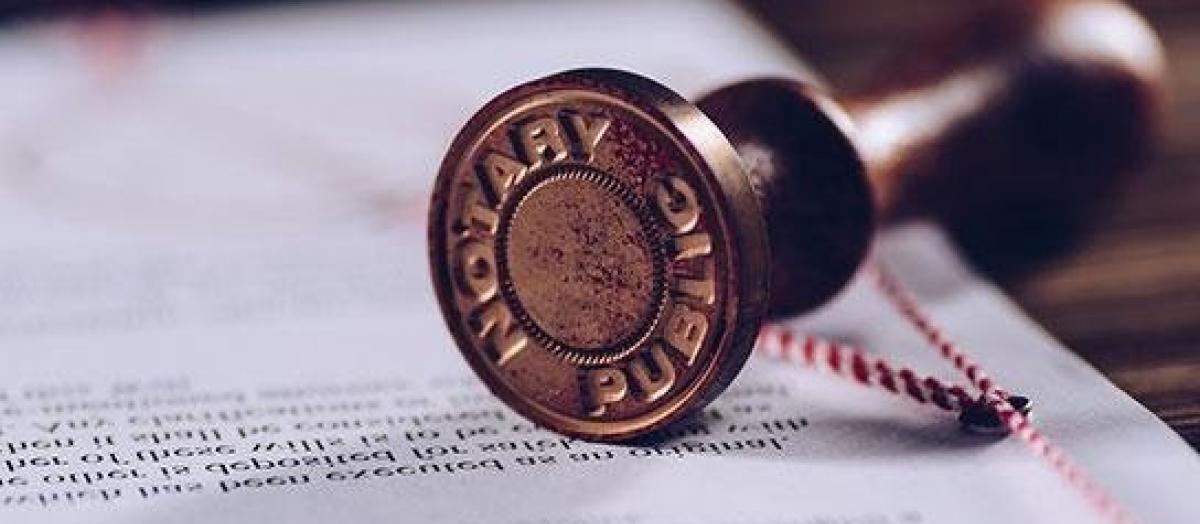Certified Notary Providers: Ensuring Lawful Authenticity and Security
Debunking Notarial Work: Simplifying the Duty and Value of Notaries
Their role, usually shrouded in enigma for lots of, carries substantial weight in guaranteeing the validity and honesty of critical papers. By deciphering the intricacies surrounding notarial methods and shedding light on the value of their acts, a clearer understanding emerges of the vital function notaries play in maintaining the material of legal and legal agreements.
The Background of Notarial Job
The history of notarial job dates back to old civilizations, where scribes played an essential duty in taping essential details and authenticating papers. This led to the growth of notaries, people appointed by the state to act as neutral witnesses in legal issues.
During the Middle Ages, notaries obtained importance in Europe, with their features expanding to consist of composing lawful files, accrediting trademarks, and preserving documents. The rise of worldwide trade further emphasized the value of notarial work in validating contracts and agreements across boundaries.
In the modern-day era, notaries continue to play an essential duty in legal and organization deals by confirming identifications, confirming the authenticity of files, and stopping scams. Their function in licensing the validity of arrangements includes a layer of safety and security and depend the ever-evolving landscape of commerce and law.

Tasks and Duties of Notaries
The historic evolution of notarial job from old worlds to the modern age has shaped the distinctive tasks and obligations that notaries support in legal and organization purchases today. Notaries play a vital duty in confirming the authenticity of documents and the identity of signatories. Among their primary responsibilities is to witness the signing of essential files, such as wills, actions, and contracts, to make sure that all events are becoming part of contracts knowingly and voluntarily. Notaries likewise confirm that notaries are of sound mind and not under duress or browbeating.
Moreover, notaries are entrusted with administering vows and affirmations, which are crucial in legal process and the execution of sworn statements. They certify copies of original documents, offering assurance to establishments that the duplicates are real replicas of the originals. Notaries need to preserve exact documents of all transactions they oversee to guarantee openness and responsibility. On the whole, the duties and responsibilities of notaries are vital in guarding the stability and legitimacy of various files and deals.
Notarial Certificates and Signatures
Exhibiting thorough focus to detail, notarial certificates and signatures function as important components in verifying the authenticity of lawful records. Notarial certifications generally include critical information such as the date of registration, the names of the notaries, a description of the paper, and the notary's main seal. These certifications provide a clear document of the notarial act, guaranteeing that the record can be conveniently determined and mapped back to the notary go who looked after the procedure.
Trademarks play a crucial function in notarial work, as they signify the arrangement and approval of the parties involved. Notaries thoroughly witness the finalizing of papers to confirm the identity of the signatures and verify that they are authorizing best site of their very own cost-free will. By affixing their official seal and trademark to the file, notaries certify that the necessary procedures have been complied with which the file is legitimate and enforceable.
In essence, notarial certifications and trademarks are the hallmark of authenticity in legal purchases, providing guarantee to all parties included that the records are genuine and binding.
Importance of Notarial Acts

Notarization Refine Clarified
Explaining the notarization procedure gives quality on the crucial actions involved in validating legal documents. The registration process commonly begins with the individual presenting the record to a notary public. The notary then validates the signer's identity through appropriate recognition approaches. As soon as the identity is validated, the notary guarantees that the specific authorizing the record does so voluntarily and without any kind of coercion.

Final Thought

Notarial certificates usually have vital information such as the day of notarization, the names of the signatories, a description of the record, and the notary's official seal. These certificates supply a clear document of the notarial act, guaranteeing that the record can be easily identified and traced back to the notary who managed the process.
By fastening their main seal and trademark to the document, notaries accredit that the needed treatments have actually been followed and that the paper is legitimate and enforceable.
By confirming the identity of the notaries, confirming their desire to get in right into the agreement, and licensing the day and place of the finalizing, notaries play an important function in maintaining the legitimacy of legal files.After the file is signed, the notary will attach their official seal or stamp onto the file.